Project Introduction (日本語)
Development of technology for building human relationships in physical/cyber space using “KOKORO Distance Meter”
Project outline
Reports indicate that the quality of human relationships among individuals and in organizations affects people’s physical health as well as mental health. However, human relationships and related mental condition have always been considered too complex to understand objectively. Human relationships are now being formed in an ever-expanding sphere encompassing physical and cyber spaces, including the Internet, as well as physical-cyber fused spaces. The current situation makes it necessary to urgently develop and generalize the use of technologies that optimize human relationships while taking into account the surrounding situation. As we mentioned above, we intend to develop technologies contributory to the formation of human relationships in both physical and cyber spaces with a focus on mental health in this research project.
Research results envisaged in the project
In this project, we begin by developing a technology that objectively assesses KOKORO distance as a degree of psychological closeness that a person feels vis-à-vis his or her interlocutor in various communication settings. We will then identify the risk factors that reduce this degree of closeness and construct a system that predicts improvement in the state of human relationships as a human relationship-optimizing technology. We will then identify the risk factors that reduce this degree of closeness and construct a system that predicts improvement in the state of human relationships as a human relationship-optimizing technology. In 2020, the spread of COVID-19 completely transformed many people’s lifestyles. One particularly significant change has been the considerable increase in the time and occasions for cyber-space communication. Due to this change and many other factors, it is believed that the need will continue to grow for objective indicators that measure and determine optimal interpersonal physical and KOKORO distance. We are pursuing this research project in the belief that its results will be indispensable for the next generation under such circumstances.
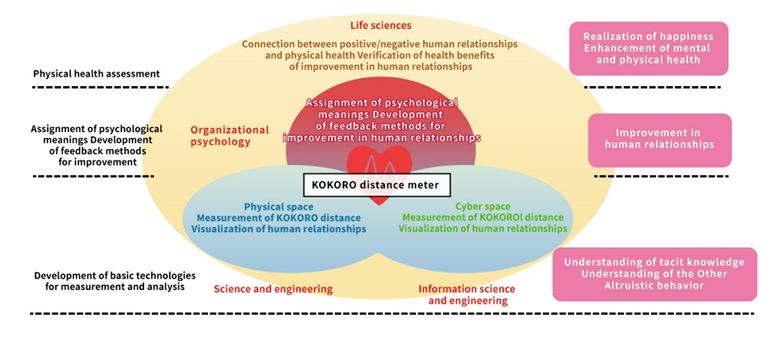
Project structure
This research project is conducted by four groups that collaborate with one another. Firstly, the Okada Group is in charge of objectively measuring KOKORO distance and the quality of human relationships, and visualizing the measured results.
Secondly, Prof.Nishihara’s Group is charged with the measurement of KOKORO distance in cyber spaces by using natural language processing, development of a technology that visualizes human relationships in cyber-spaces.
Thirdly, Prof.Yamaura’s Group will process the data on KOKORO mental distance and human relationships in physical and cyber spaces captured by the Okada and Nishihara Groups, assigning meanings to them from a psychological perspective.
Finally, the Mukai Group is studying how physical health is related to the quality of human relationships and change in the state of mind.

Project No.1
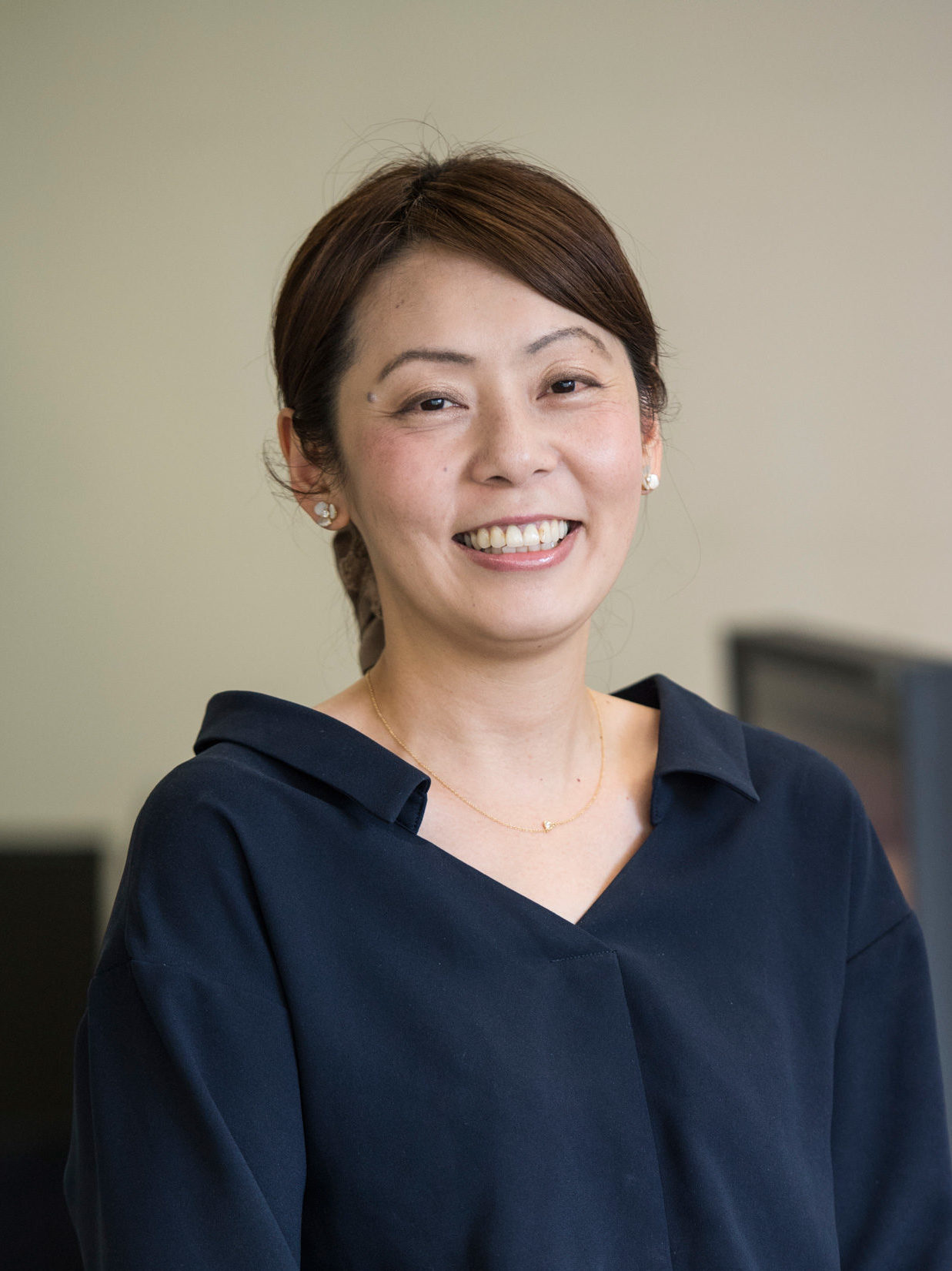
Project leader
Professor, Department of Robotics, College of Science and Engineering
Shima Okada
1. Research subject
Measurement of KOKORO distance in physical spaces, development of a technology that visualizes human relationships.
Prof.Okada’s Group is in charge of objectively measuring KOKORO distance and the quality of human relationships, and visualizing the measured results. For measurement in physical (real-life) spaces, the group will develop a wearable multi-sensor system that measures biological data such as electrocardiograms, respiratory rate, perspiration, active mass, and vasoconstrictor response.
2. Research Introduction
※In preparation.
Project No.2
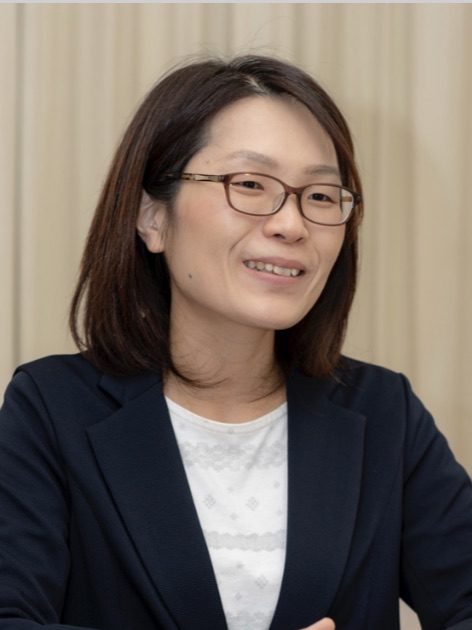
Group leader
Professor, Department of Information Science and Engineering, College of Information Science and Engineering
Yoko Nishihara
1. Research subject
Measurement of KOKORO distance in cyber spaces, development of a technology that visualizes human relationships.
Prof.Nishihara’s Group is charged with the measurement of KOKORO distance in one-on-one interpersonal relationships in cyber-spaces. Prof. Nishihara has already succeeded in inferring participants’ intentions in verbal communication and the degrees of friendliness based on the endings of Japanese utterances such as “…desu (です)” and “…dayo (だよ)” observable in chat tool conversation. Using this knowledge and the features of communication media, such as written text, voices, and video images used in cyber spaces, the group will propose a method to measure KOKORO distance. At the next stage, this method will be developed to be applicable to the measurement of KOKORO distance in one-on-many communication, in an attempt to visualize human relationships in cyber-spaces.
2. Research Introduction
※In Preparation.
Project No.3
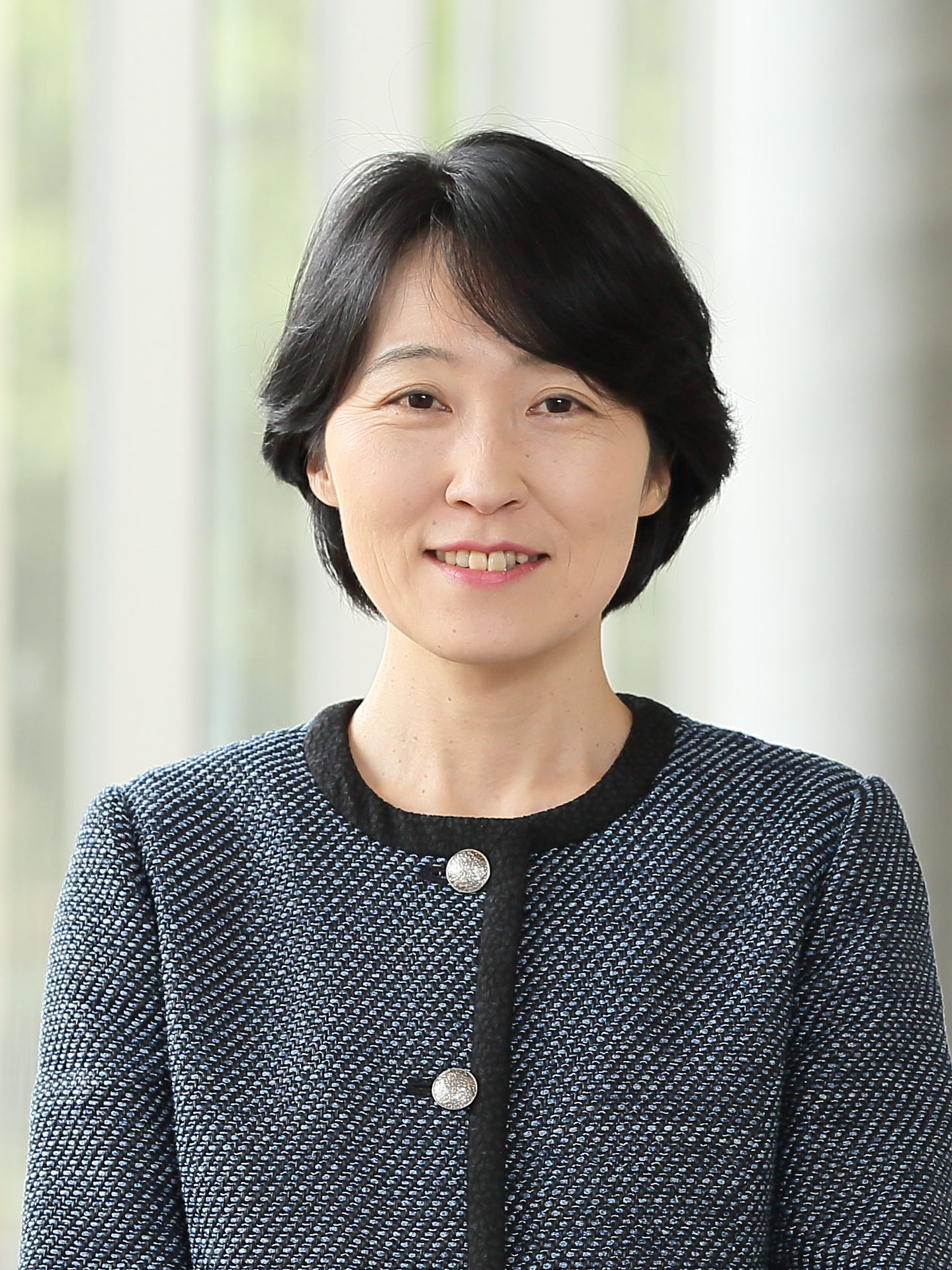
Group leader
Professor, Department of Sport and Health Science, College of Sport and Health Science
Kazuho Yamaura
1. Research subject
Assignment of psychological meaning using a KOKORO distance meter, development of a basic technology for human relationship formation.
Prof.Yamaura’s Group will process the data on KOKORO distance and human relationships in physical and cyber spaces captured by the Okada and Nishihara Groups, assigning meanings to them from a psychological perspective. The group will participate in measurement sessions by the Okada and Nishihara Groups and conduct questionnaire surveys consisting of various psychological indicators. The data thus obtained will be collated with data from the quantitative evaluation and measurement developed by the other two groups and data on physical health obtained by the Mukai Group so that all data sets can be assigned psychological and subjective meanings and are interpretable. In addition, the Yamaura Group will develop an effective feedback method for the results of heart distance measurements for individuals and groups. The visualization of heart distance through measurement would be useless unless it could be applicable to the improvement of human relationships for the persons concerned. Therefore, interviews and surveys on feedback will be conducted with participants in experiments by the Okada and Nishihara Groups to determine feedback details that are useful and effective for participants , considering the types of information to be provided and the timing, frequency, and format of their provision, based on the indicators of the heart distance meter. This will be followed by verification.
2. Research Introduction
※In Preparation.
Project No.4
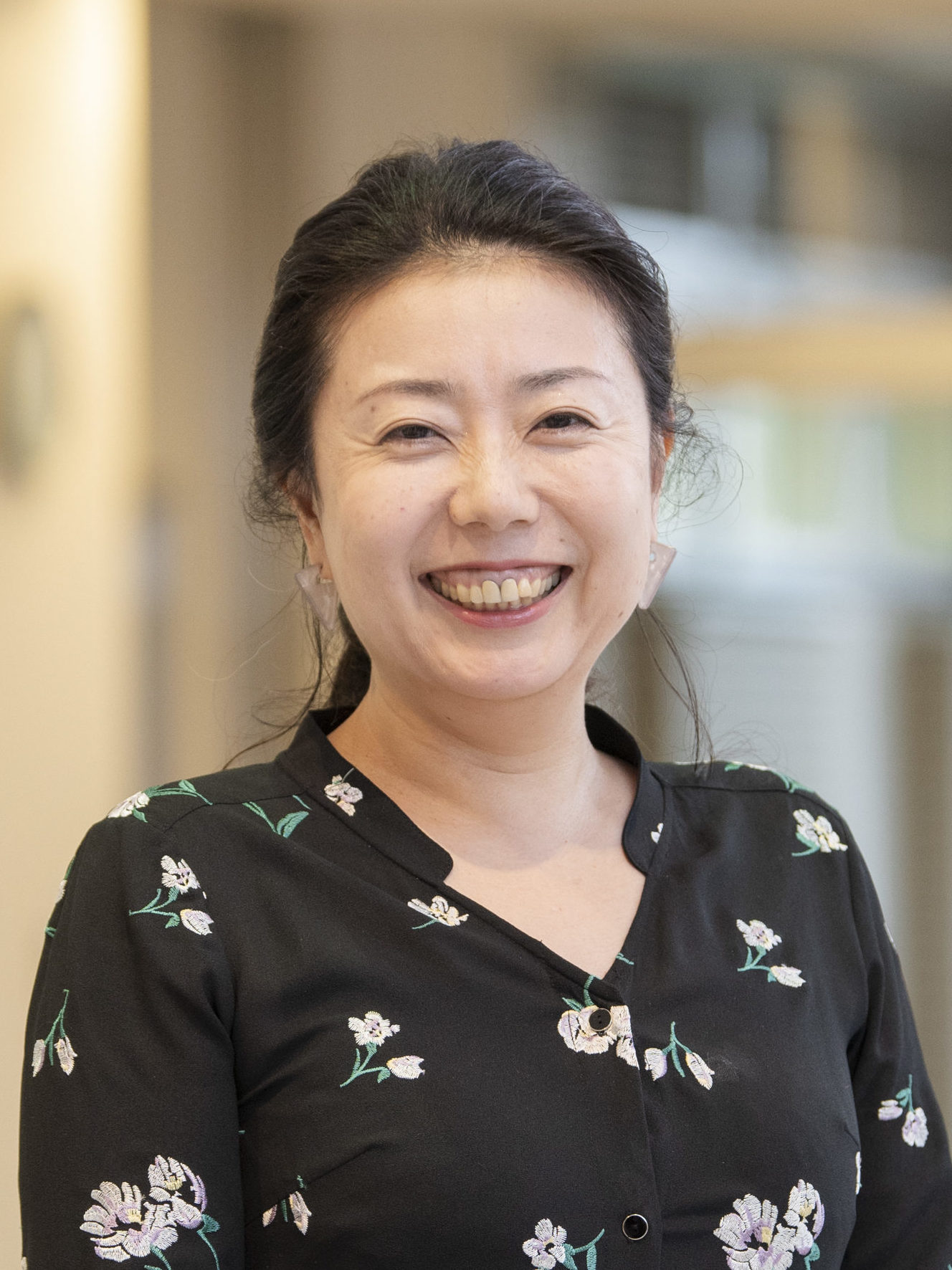
Group leader
Professor, Department of Biomedical Sciences, College of Life Sciences
Eri Mukai
1. Research subject
Elucidation of the relationship between qualitative improvement in human relationships and physical health, verification of health benefits.
Prof.Mukai Group is studying how physical health is related to the quality of human relationships and change in the state of mind. For this purpose, the group will clarify how physical health is related to the objective and quantitative data measured by the Okada and Nishihara Groups on human relationships and mental states in physical, cyber, and physical-cyber fused spaces. Firstly, change in physical health will be monitored comprehensively and exhaustively, by conducting nutritional surveys appropriately because mental stress tends to cause overeating or overnutrition, in addition to factors related to lifestyle-related diseases, such as respiratory rate, heart rate, electrocardiogram data, blood pressure, and blood sugar levels. The group will then attempt to elucidate how the monitored results are related to measured data on human relationships and mental states, thus developing health indicators using biomarkers. After improvement is confirmed in human relationships attributable to the feedback method developed by the Yamaura Group, a demonstrative study will be conducted to verify its effectiveness in improving physical health. This should eventually lead to realizing and promoting a system that improves the quality of human relationships.
2. Research Introduction
※In preparation.